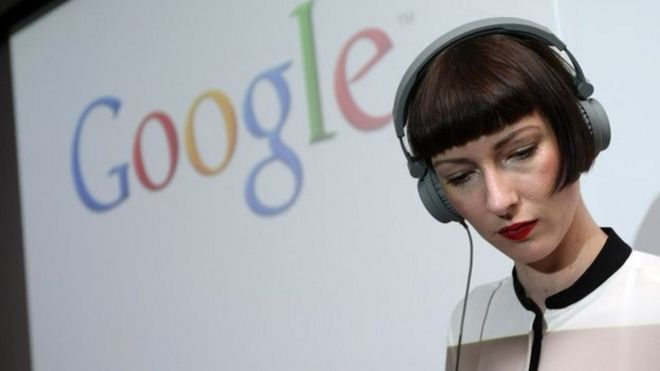Google defends its business as EU sanctions loom
Google defends its business as EU sanctions loom

At
a press conference at 11:00 BST today, it is expected that the European
Union's competition commissioner, Margrethe Vestager, will outline the
case against Google's dominant position in the search market.
It
is likely to allege that the technology firm uses that position to
direct search traffic to its own businesses, such as Google Shopping.Some people call that market abuse, a claim Google firmly denies.
Although this is a significant moment, as with anything to do with the European Union, it is another stage in a slow process which is likely to take a number of years to resolve.
I first reported on the launch of the investigation back in 2010 before the last general election.
At that stage, Google wanted to resolve the issue by offering remedies on how it ordered search results.
It had seen how Microsoft had become bogged down in years of competition warfare with the European Union over how it "bundled" its products, and ended up being fined £1.5bn anyway.
Google's proposal was to make links to rival services much more prominent.
But with a legion of critics within European governments and across media and technology businesses, each attempt failed.
Rapid changes
The technology campaigning organisation, ICOMP, said of expected developments: "A statement of objections represents a formal finding by the Commission that Google is dominant and that its actions have caused harm to businesses and consumers in Europe."If confirmed, this is an important step towards a successful return to a fair and competitive online marketplace that will be welcomed by our members."
Unsurprisingly, Google does not concur. And in a leaked internal memo to "Googlers", it lays out its case.
At its simplest, Google says that "with competition just a click away", the notion of dominance in technology markets is different from, say, dominance in the energy market.

Search is also changing rapidly and is not itself the essential powerhouse of commercial success it used to be.
Google says that on mobile phones for example, seven out of every eight minutes is spent within apps, rendering mobile search a much less important function.
This, of course, is a threat to part of Google's business model as consumers use mobile as their digital entry point of choice.
In shopping, which is expected to be the focus of the European Commission's announcement today, Google says that eBay and Amazon are much more powerful online than Google Shopping, for example.
It is certainly true that Google is dominant in search, with more than a 90% share of the market across Europe.
Google claims that is because it offers the best service which is most relevant for us, the consumers, who carry out three billion searches every day.
Detractors say it has used its position to skew the market in its favour.
ICOMP, which is no fan of Google and lists arch-rival Microsoft as one of its supporters, puts the threat like this: "Google stands accused of manipulating its search results to systematically favour its own services and demote or exclude those of its rivals, thereby diverting vast quantities of traffic and revenues away from competitors and to its own growing stable of competing services."
It says that Google has "all but eradicated" the price comparison web market and is embarked on a similar course on travel search and financial price comparison.
Because consumers think we're better, Google might say. It will be for the EC to decide if its dominance goes too far.
UPDATE 14:10
So the European Union's competition commissioner, Margrethe Vestager, has confirmed that the EU has lodged a statement of objections against Google for market abuse over search and its Android mobile platform.She argues that Google's dominance is not the problem.
Rather, it is what Google does with that dominance that matters: ie, it puts its own businesses such as Google Play, YouTube and Google Shopping ahead of other competitors when customers search for products.
``It is not based on the merits of Google Shopping that Google Shopping always comes up first [in search],'' Ms Vestager said. ``Dominant companies have a responsibility not to abuse their powerful market position.''
Google's response to the European Commission can be found here.
At its simplest, the company says that competition in the search and mobile phone market has never been more intense.
Which shows that the market is working and that consumers have real choice. If they use Google, it is not because they have to.
It is because it is the best.
Source:: bbc.com, re-posted by Abdulgafar Esho (www.econsforumnews.blogspot.com)










0 comments:
Post a Comment